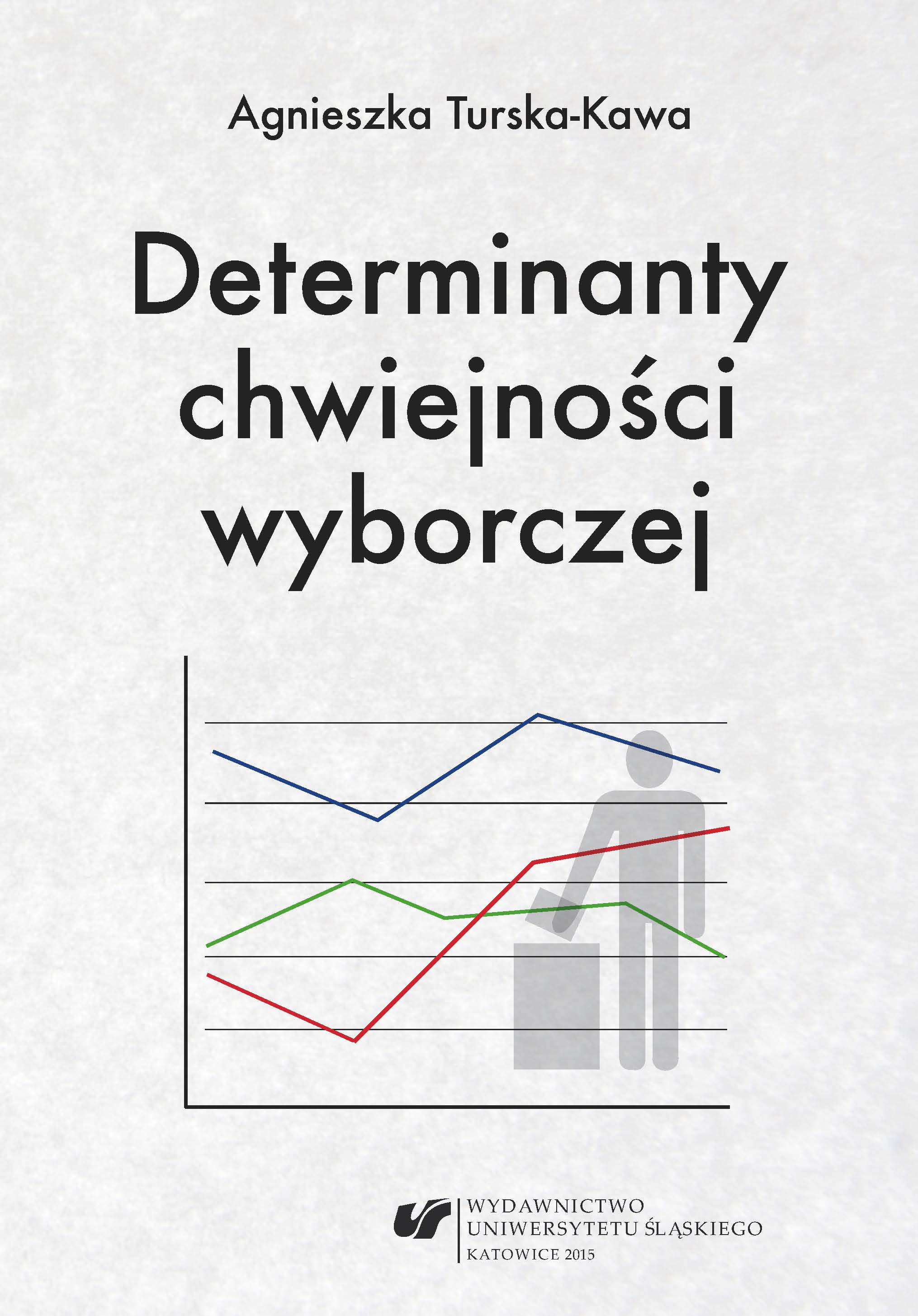Determinanty chwiejności wyborczej
Determinants of electoral volatility
Author(s): Agnieszka Turska-Kawa
Subject(s): Politics / Political Sciences, Political Theory
Published by: Wydawnictwo Uniwersytetu Śląskiego
Keywords: electoral volatility
Summary/Abstract: The monograph takes up the issues of determinants of electoral volatility in reference tofour groups of factors — that is, systemic, social, psychological, and economic. The openingchapter aims at introducing the reader with the issues of electoral volatility, where definitionsof electoral volatility have been presented with regards to different research perspectives.With due attention to the specific character of the phenomenon, different methodologicalissues have been discussed, predominantly those concerning the indices of electoral volatilityas well as dilemmas over their usage. Moreover, the chapter provides an analysis ofelectoral volatility in terms of democratic consolidation processes. Chapter one ends withcritical analysis of operational and interpretative approaches.The subsequent chapters discuss the groups of electoral volatility determinants. Thefirst group comprises systemic factors that include both the shape of political system andinstitutional solutions at the same time functioning as its framework. Taking into accounttheir range of impact on electoral volatility, the aforementioned areas provide an analysisof the following factors: political regime, political system, compulsory voting, incentivesfor electoral activity, the form of political party system, new parties, political polarization,forced electoral volatility, as well as electoral manipulation. The second group of determinantscomprises social factors connected with the social structure where an individualfunctions, and which is a point of departure in making decisions, including electoral ones(socio-political divisions, politics directed toward the increased electoral participation, preelectionpolls, Democracy 2.0, and political leadership). Psychological factors belong to thethird group. However, they are viewed rather controversially in the literature on the subjectas they mainly concern latent (hidden) variables, which are far more difficult to prove and,apart from that, it generates discussions that are hypothetical and dubious in nature. Withinthis area different factors have been analyzed — that is, axiology, civic competence, psychologicalcontract, party identification, political branding, electoral uncertainty, and a negativeelection campaign. The next chapter deals with the analysis of economic variables whichare expressions of distinct relations between economy and politics.In terms of the analysis of relations between economy and politics that may occur essentialfor the electoral volatility, the analysis has been delineated in regards with the followingtheories and models: rational choice theory, public choice theory, constitutional economy,economic theory of democracy, a model of an investing elector, retro- and prospective voting.The economic factors that moderate electoral volatility have also been depicted in termsof the assumptions of the “New Politics” as well as mechanisms that govern the EuropeanParliament elections. In the summary the author attempts at delineating connections betweenthe presented and discussed in particular chapters of the book, groups of determinants andelectoral volatility, with focus on the essential extent of the hypothetic character of the discussion,which however results from difficulties in their empirical verification. Aside fromthat, the author seeks for answers to questions on the stability of particular determinants intime and possibilities of their external influencing.
- E-ISBN-13: 978-83-8012-393-9
- Print-ISBN-13: 978-83-8012-392-2
- Page Count: 328
- Publication Year: 2015
- Language: Polish
- eBook-PDF
- Table of Content
- Introduction

